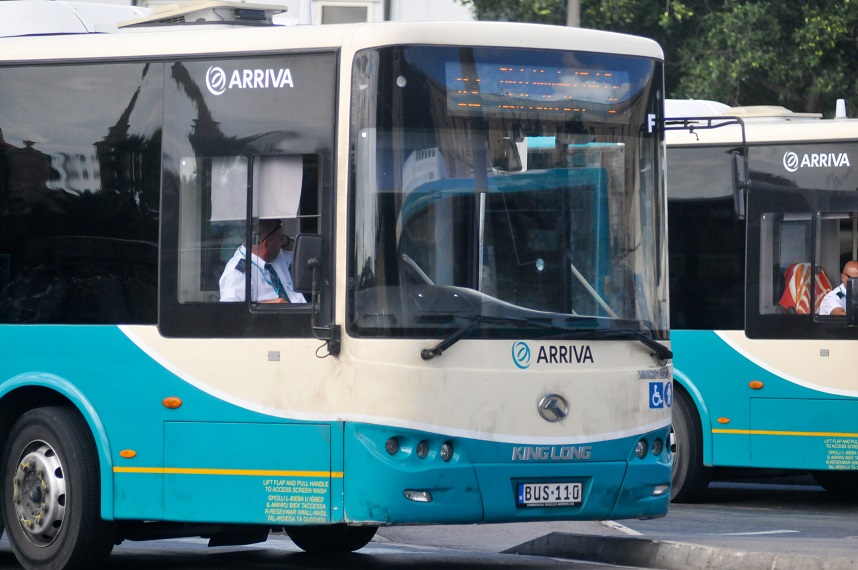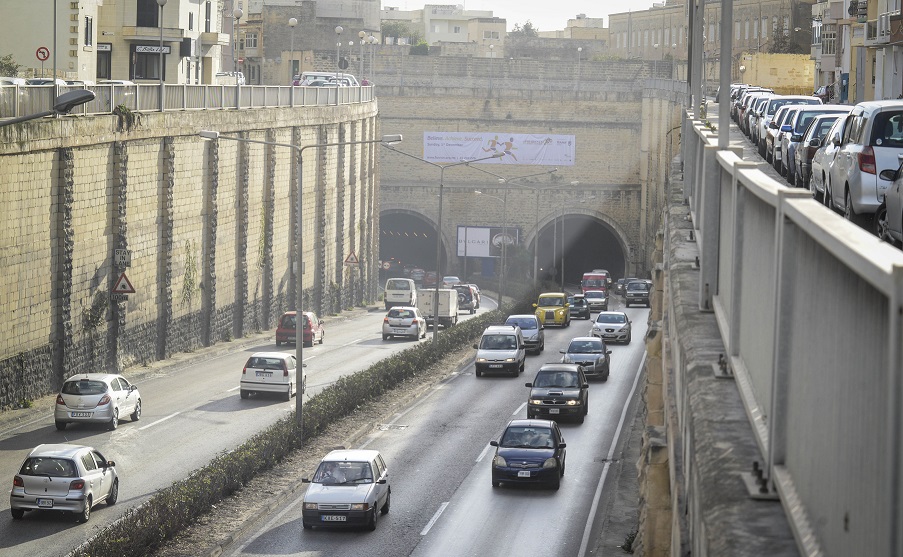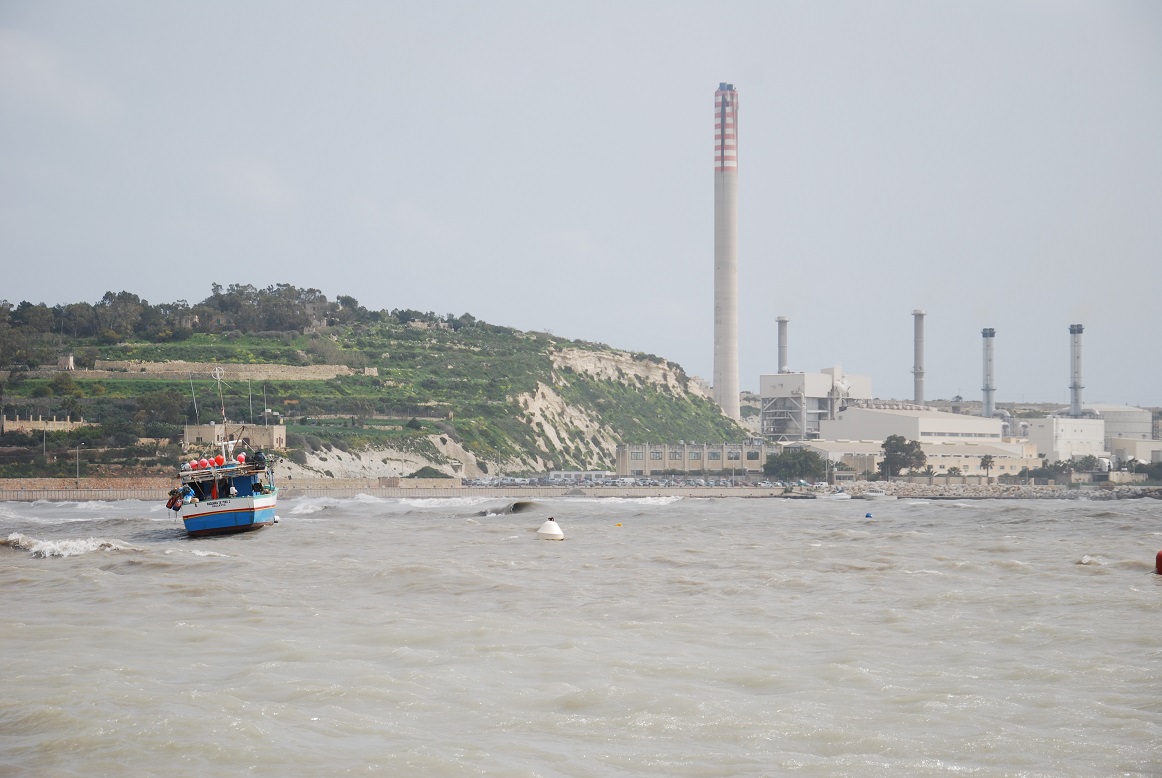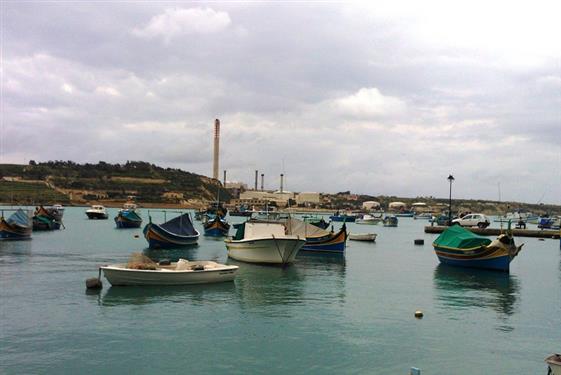“At the moment, Air Malta is a concern for the MHRA. Treating Air Malta as an extension of the civil service is not the way to go. Air Malta generated about 50% of incoming travel, it is the pipeline for tourism and is very important not only for us as tourism operators but also for our economy as a whole,” Mr Pace says.
“The MHRA has already proposed the BOV model for Air Malta, namely that of being partly government owned with a major private shareholding. This is a model that has worked in the financial sector and can be adapted for our national airline. The last thing you want is the national airline being completely foreign owned. Given our dependence on the national airlines The government needs to have a say to ensure that certain social obligations are obsereved whilst run in the most efficient manner .”

Public transport woes an urgent matter
Another transport issue worrying the MHRA is that of public transport.
“One of the key complaints about Malta made by tourists is public transport. It is a headache and it needs to be addressed urgently. We have been talking about this issue for three to four years now. We are passed talking. I think action needs to be taken.”
“The public transport situation had to be addressed yesterday, because it is an urgent matter. More importantly the complaints being generated have to be sorted at the right cost.
“I think even though there is positive will to address the situation the fact that we are still talking about it does not augur well. Heads have to come together, MHRA is always involved to voice the industry’s concerns, and we will welcome any initiative that will improve the situation.”
Before talking longer term solution such as underground rail, the Association asserts that we need to get the basics right first therefore the priority has to be consolidating and improving the present public transport system, Mr Pace says.

Bureaucracy and cowboys
Last week, this newsroom revealed that an illegal three star hotel is currently operating in Bugibba. Mr Pace says that the authorities should ensure a level playing field for all hotels and restaurants. This being said, excessive bureaucracy by nitpicking authorities often means that entrepreneurs are not allowed to go ahead with their plans.
“Do certain illegalities exist because the owners are cowboys or is it the system is too restrictive and bureaucratic and does not allow them to get the necessary permits? We have to look at it from both perspectives constructively.”
“I always refer to the tables and chairs issue. For a simple, trivial permit, you have to go through four different bureaucracies, namely Malta Transport, the Malta Tourism Authority, MEPA and government property division.”
“You run out of steam unfortunately. This country is full of entrepreneurial people. But when they are faced with the bureaucratic process you give up at the word go. It has to be addressed from this perspective. Why are there unlicensed farmhouses doing illegal pig roasts. It is because they tried to obtain a license and not managed?”
“We need everyone to have a level playing field.”
“However if there is the demand let us not restrict the supply with unnecessary bureaucratic systems. We have been mentioning a one-stop shop for ages. It’s a pity, and it makes people run out of steam.”
“In certain situations I do not agree with closing down an establishment, as I don’t think it’s the way forward. The solution is to try and solve the problem and help the entrepreneur continue moving ahead and running his business.
“If it is a cowboy mentality then sure close him down, however we still believe that at times the system is so restricted that it might be creating the outlaws. The system needs to be addressed to simplify procedures for everybody to be above aboard.”

Cleanliness and crime
Mr Pace says more needs to be done to improve the island’s road network, signage and general state of cleanliness.
“Really and truly cleanliness has improved in certain localities but it needs to be drastically addressed. Our road network and pavements really need to be upgraded. In the south of Malta, the road network is in a dilapidated state.”
The recent spate of robberies and muggings in tourist zones like St Julian’s, Sliema and Bugibba has not yet had an effect on tourism, he says, but the MHRA is monitoring the situation.
“The Police are taking a serious approach in the affected areas. I do not think that tourism has been affected because of the rise in crime, but the fact it is becoming a concern has led us to raise the issue in order for it to be tackled now. Part of the attraction of Malta is that it is viewed as being a safe destination, and we would like to maintain this.”

Power
Mr Pace says the costs of last month’s power blackout go beyond the immediate financial losses.
“The costs are unquantifiable. How can you put a cost on a tourist not returning to the country because of the blackout? I have to remind that MHRA has been at the forefront of the campaign about Enemalta and energy for the past five years.”
“The 25% decrease in energy bills for businesses in is a result of this campaign. Our concern is not the blackout of the past two weeks. We are not after tokens, €25 euro is not going to bail us out. What the industry wants is stability. We want to put our minds at rest that this is not going to happen again.”
Despite shunning “tokens,” Mr Pace says the MHRA is currently discussing a waiver on interest fees for outstanding electricity and water bills for its members.
“Something we are working on is the seasonality issue regarding hotels and restaurants on the payment schemes with ARMS. Obviously summer is busy and winter is much quieter. We are trying to come up with a payment scheme, maybe even an interest waiver. This is still under discussion.”
“Our primary concern is stability and looking ahead. This blackouts problem will hopefully diminish and be eradicated completely in the next few years.”

Financial sustainability of hotels and restaurants the biggest challenge
All is not “a bed of roses” in the hotel and restaurant industry. While the summer months always prove to be a boon, the shoulder months are challenging. Very few hotels in Malta are foreign owned.
“When foreign investors come to Malta and do the maths they realise that the sustainability factor is not enticing enough to invest in Malta. When one takes into consideration that Malta for the past five years has had record tourist arrivals, I think it speaks volumes, there must be something wrong on the sustainability front.”
“Sustainability is vital. What concerns the whole industry is that if the bottom line is not going to improve, there is not going to be enough money for refurbishments. This means that standards will decline and the pulling factor of the hotels in general will not be as it is today.”
“It is a major concern that MHRA has been drumming on about for ages. Unless there is sustainability for the tourism industry then there will not be enough money for further investment in the properties.”
“We know the summer season is short and the winter season is long. Some hotels close in winter, which speaks volumes. We have to work on the factor of enticing tourisms towards Malta, from different regions, in particular the BRIC countries [Brazil, Russia, India, China].”
“For instance a stumbling block being addressed in the BRIC markets is the visa process, and this needs to addressed in the same way our competitors from the EU are doing if we want to take advantage of the growth trends in these markets.”

Turning the South into a playground for the rich?
Mr Pace says it is important to strike a balance between maintaining the present level of tourist arrivals and targeting new niches such as high-end tourism.
“We have to focus on a high-end tourist as well. There is a clear and separate market for luxury tourists. The north and central regions of Malta are pulling in the numbers because the big hotels are there.”
“We can use the south of Malta to host more of these boutique hotels. There are a lot of houses of character that can be used as bed and breakfast boutique hospitality places to attract high-end tourists.
“Tourists want to experience what life is like in Malta, and the south can offer that. We are a long way to achieve this objective but every journey starts with a first step”